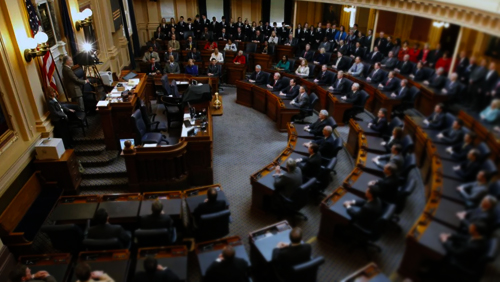Virginia has almost reached the finished line to offer legalized casino gambling in the state. The General Assembly approved a gambling bill this past Saturday that would allow casino construction in certain areas in the state and all that’s left is the signature from the governor of Virginia, Ralph Northam.
 Northam has already stated that he would approve casino expansion in the state, so, unless someone has been able to get to him to change his mind recently, Virginia could be just days away from seeing the green light given. The governor has previously stated that he would support any legislation that would help to create more jobs and tax revenues for those areas suffering from large deficits.
Northam has already stated that he would approve casino expansion in the state, so, unless someone has been able to get to him to change his mind recently, Virginia could be just days away from seeing the green light given. The governor has previously stated that he would support any legislation that would help to create more jobs and tax revenues for those areas suffering from large deficits.
Substitute Senate Bill (SSB) 1126 made it through the House and Senate with no problems. It would allow the development of casinos in Portsmouth, Danville and Bristol, but those cities would still need to approve the activity. Ultimately, the choice resides in the hands of the cities’ residents. The bill also paves the way for casinos in Norfolk and Richmond, two cities that have been targeted by the Pamunkey Indians for its tribal casino.
Virginia, as have many other states, has repeatedly tried to offer a greater gambling market. However, past attempts have all failed, with none having reached as far as SSB 1126. Before any gambling activity is offered, though, Virginia’s Legislative Audit and Review Commission will need to conduct a study on the social and economic impacts of a casino in the target locations, and present the findings of the study no later than November 1.
SSB 1126 taps the Virginia Lottery Board with creating the rules and regulations for the state’s casinos. It is expected to begin drafting those rules by January 1, 2020, and should present them no later than June 30. Casino licenses would be issued by the board following July 1, 2020.
Gambling revenue is expected to be taxed between 13-15%. The amount assessed will ultimately depend on the casino’s adjusted gross revenue. There will also be a self-exclusion program so individuals can pull themselves away from gambling if they feel it’s becoming a problem.